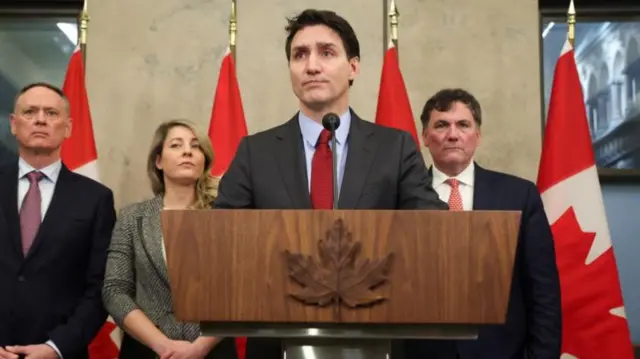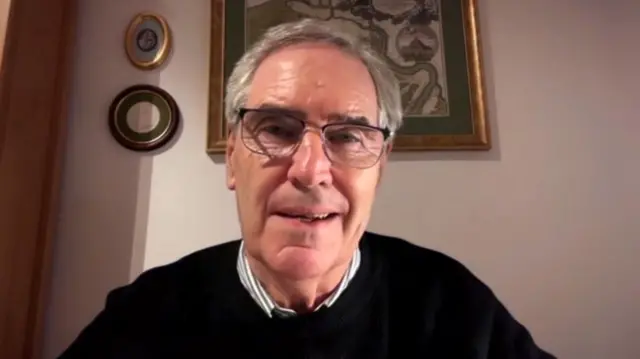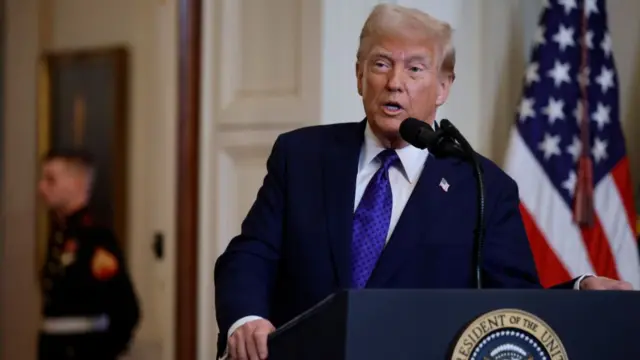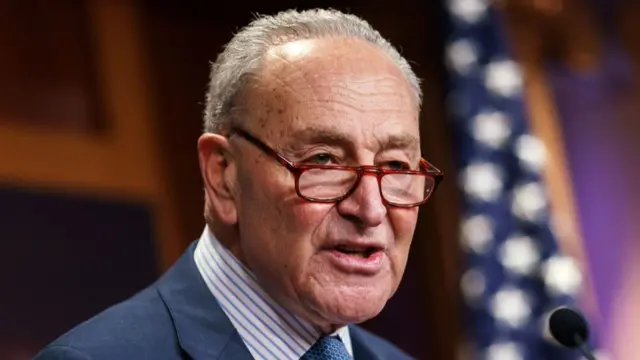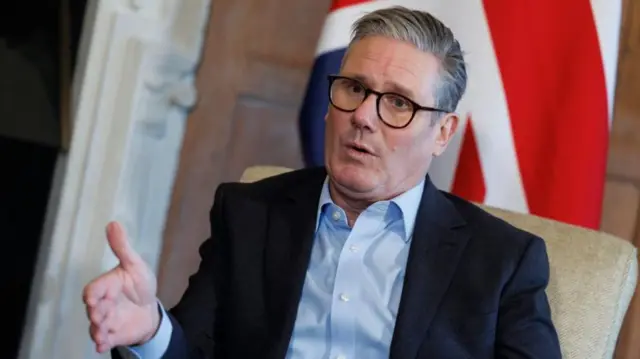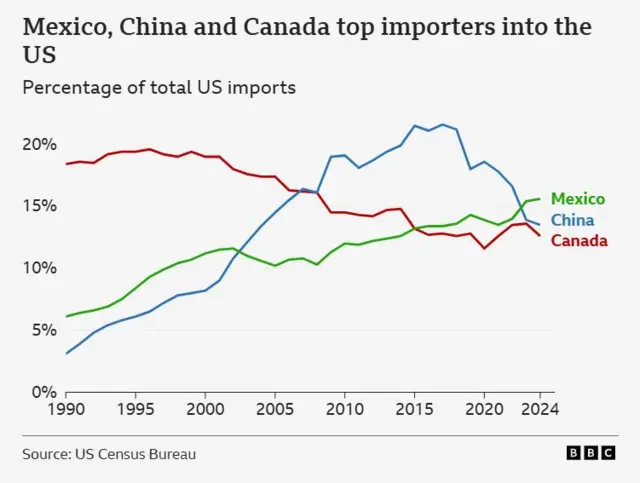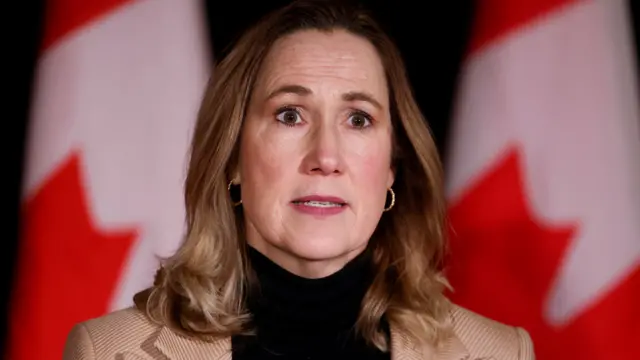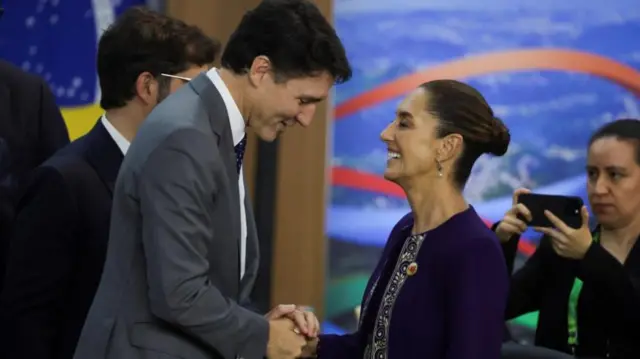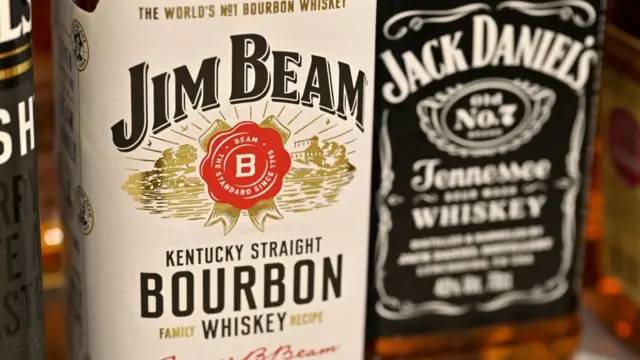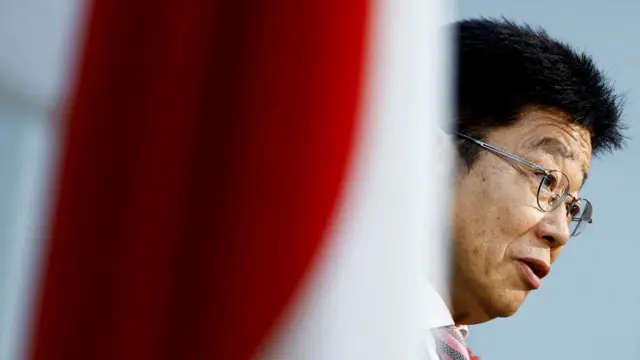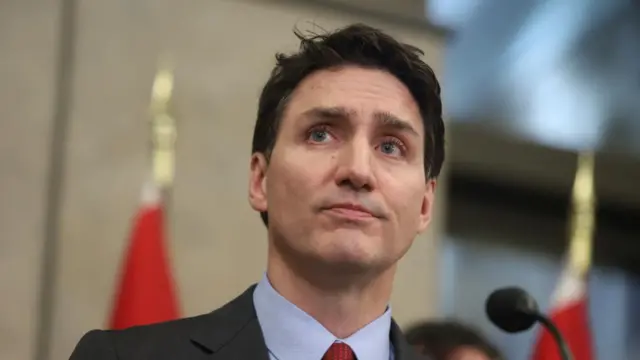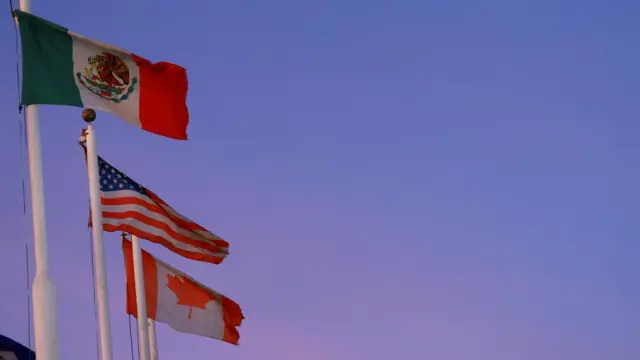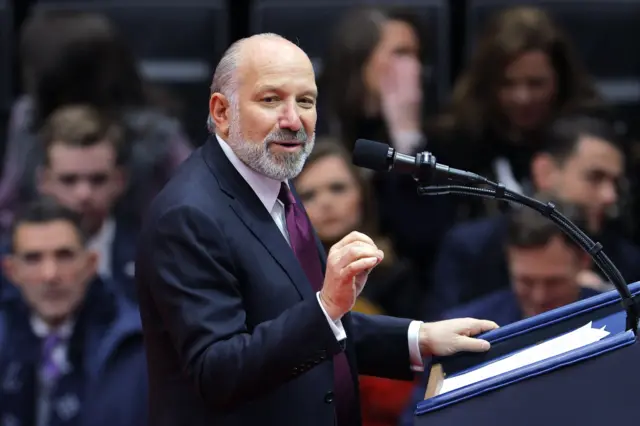Wine, chocolate and cheese among US products facing Canada tariffpublished at 18:15 GMT 2 February
 Image source, EPA
Image source, EPAWe've been getting a bit more details on the products Canada will be imposing retaliatory 25% tariffs from Tuesday.
The first wave of taxes will apply to $30bn worth of US imported goods and they'll remain in place until the US eliminates its tariffs on Canada, the Department of Finance says.
The list of tariffed products, external includes:
- Meat: Live poultry, dried or smoked meat, sausages
- Dairy: Milk, cream, yoghurt, butter and cheese
- Fruit and veg: Tomatoes, citrus, apricots, cherries and peaches
- Drinks: Coffee, tea, fruit juice and wine
As well as oats, pasta, chocolate, tomato ketchup and more.

